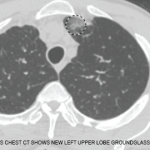Granulomatosis with polyangiitis is another uncommon disorder involving inflammation of the blood vessels. There are good remission reduction treatment protocols, Dr. Caforio said, but even then there may be myocardial involvement requiring a pacemaker. She said it’s important to get accurate cardiac imaging because if there’s cardiac involvement, induction therapy might be difficult.

Cardiac MRI
Sven Plein, MD, professor of cardiology at the University of Leeds, reviewed the role of cardiac magnetic resonance imaging (MRI) in assessing the cardiovascular effects of chronic inflammatory conditions. Dr. Plein, who has studied the topic extensively, said that MRI offers “unique opportunities for imaging of the heart,” but also highlighted potential pitfalls.
In general, cardiac MRI is very accurate, with high reproducibility and consistent image quality, but as with any technique, expertise is needed to acquire and interpret the images correctly. In the published literature, this has not always been the case, as he demonstrated with several example images.
“Radiologists sometimes feel that cardiac assessment is more difficult than assessment of other organs, and cardiologists feel like it’s technically a challenging modality compared to echocardiography, for example,” he said. However, with appropriate training, cardiac MRI is no more challenging than other imaging.
Also, the availability of the technology varies widely. For example, there are more than 60 centers in the United Kingdom offering cardiac MRI, and similar numbers can be found in other European countries, but there are also countries in Europe with “only a handful” of centers.
He said cardiac MRI can be done in any hospital with MRI equipment—it just requires some additional software and hardware. But, he added, “that doesn’t get around the training issues. And those will take time, especially when there are political issues between radiology and cardiology over access to the scanners.” Ideally, the two specialties would collaborate.
Cardiac MRI in SLE
In a related study presented during the session, Sophie Mavrogeni, MD, a cardiologist with the Onassis Cardiac Surgery Center in Athens, presented findings showing the value of using cardiac MRI in assessing the heart involvement in systemic lupus erythematosus (SLE) patients.
A total of 32 patients with new-onset heart failure in Class I or Class II—who were an average age of 29, and 29 of whom were women—were consecutively evaluated with cardiac MRI. The evaluation included left-ventricular function, short-tau inversion recovery and late gadolinium enhanced (LGE) images.
Researchers saw signs of acute myocarditis in five of the patients, dilated cardiomyopathy in five others, myocardial infarction in 11, vasculitis in nine and Libman-Sacks endocarditis in two. They found no mixed pathologies in any of the patients.


